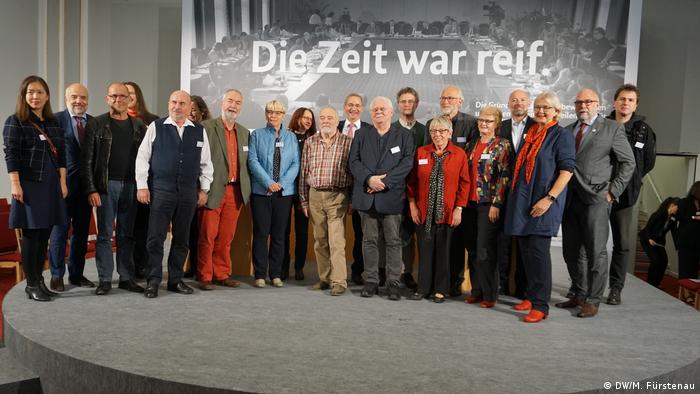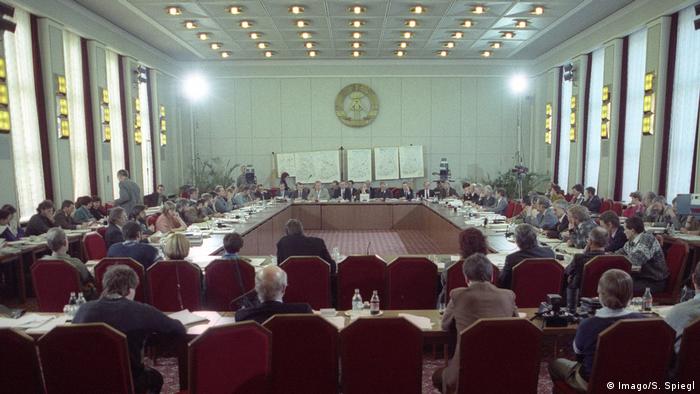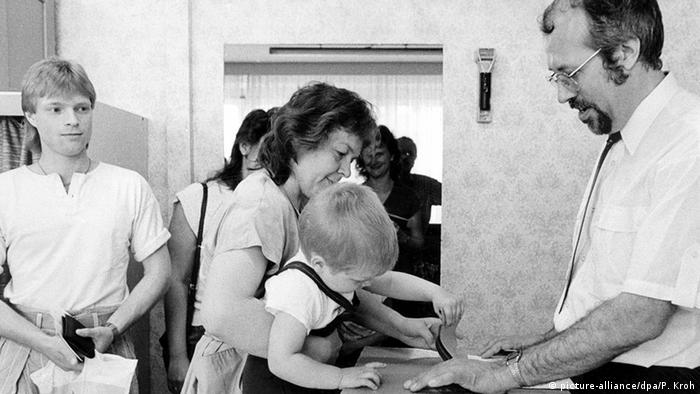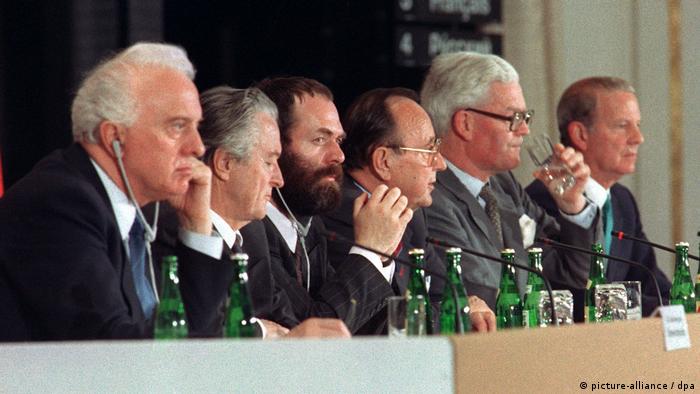Germany celebrates the peaceful Revolution in the GDR in 1989. To kick off civil rights activists recall the exciting months leading up to the reunification, in the first Moment, hardly anyone thought.

Group picture with DDR-learning civil rights: in the middle of Rainer Eppelmann and Markus Meckel (4.u.5. v. l. in the first row)
The last GDR foreign Minister and the last Minister of defence in 1990 by the world political map missing small country. After the reunification of Germany, Markus Meckel, and Rainer Eppelmann did not play a major role on the big policy stage. Their fate they share with most civil-rights activists, the brave, the Communist Regime of the GDR in the way, often long before the fall of the Berlin wall on 9. November 1989.
These crucial weeks and months to do it this week at the reunion of the former actors in Berlin. The Meeting marks the opening of the anniversary program “30 years of the Peaceful Revolution and German unity”. Thus, the Federal government wants at numerous events, up to 3. October 2020 the courage and desire for Freedom of the East Germans trusted. For the dawning of an uncertain future, the former civil rights activist are representative.

The Central round table with civil rights activists and representatives of the old East German regime was, in fact, four angular
“The time was ripe”, is the Motto of the historical review: ripe for change in the GDR, in which no one yet thought of a reunification with the Federal Republic of Germany. At the Central round table, which met from December 1989 to March 1990, the focus was on a new democratic Constitution, free elections and the dissolution of the Stasi. Because the fear of the East German secret police with the obscuring name of “Ministry for state security” (MfS) continued to be large.
18. March 1990: the first and only free elections in the GDR
Rainer Eppelmann recalls: In the seventh of 16 meetings of the round table burst in on the 15. In January 1990, the message pure, the Stasi Headquarters in Berlin’s Normannenstraße had been charged. As civil rights activists wanted to prevent the files to be destroyed. “No Violence!” – again, this idea was widespread. It is the fear of a bloodbath, in which the peaceful Revolution, but still could was.

Shortly before the German reunification, the GDR could choose citizens Parliament, public chamber called for the first time free
But there is not a single shot fell, the Stasi was in fact dissolved. 18. In March 1990, were allowed to the citizens of the GDR – 41 years after the founding of their dictatorial state – for the first time free to choose. The race was an overwhelming majority of the “Alliance for Germany”. The Alliance was headed by the East German Christian Democrats (CDU) since 1949 part of the so-called popular front and the government a semblance of democracy should give.
Eppelmann: “most wanted no GDR”
After the fall of the Berlin wall, the CDU captured the spirit of the East Germans, the majority of a quick reunification of wanted. This change of course supported also by the civil rights Eppelmann co-founded and democratic awakening (DA). “The most wanted no GDR,” says the now 76-Year-old in the castle Niederschönhausen, where most of the meetings of the Central round table took place.
What is Markus Meckel thinks about Helmut Kohl
The “Alliance for Germany” then formed a government with the Alliance of Free Democrats (BFD), and – among other things, by Markus Meckel in 1989 in the GDR to democratic party of Germany (SPD), busy social. Meckel and Eppelmann were two defining figures of the peaceful Revolution, they belonged for six months of the last GDR-government.

GDR foreign Minister, Markus Meckel (3.v.l.) with its counterpart, the 1990 Two-plus-Four Treaty negotiated
Foreign Minister Meckel was involved in this short period of time in the negotiations on the Two-Plus-Four Treaty, the German was again sealed Association. Even today, he defends himself against the wide-spread reading of it, alone, the West German Chancellor, Helmut Kohl (CDU) had led the German unit with the four victorious powers of the Second world war brought about. “The two sovereign governments that have negotiated this,” stresses Meckel.
At the end of the GDR decided to Parliament to join the so-called people’s chamber, of the Federal Republic of Germany. On the joint elaboration of a new German Constitution was omitted. Therefore, critics of the unification Treaty also speak for 30 years after the historic event of a “connection” of the GDR, which did not take place at eye level. There is a reason for this is that older East and West Germans are still foreign. Rainer Eppelmann, in favour of a quick reunification, says in retrospect: “We have a lot of talking too little.”